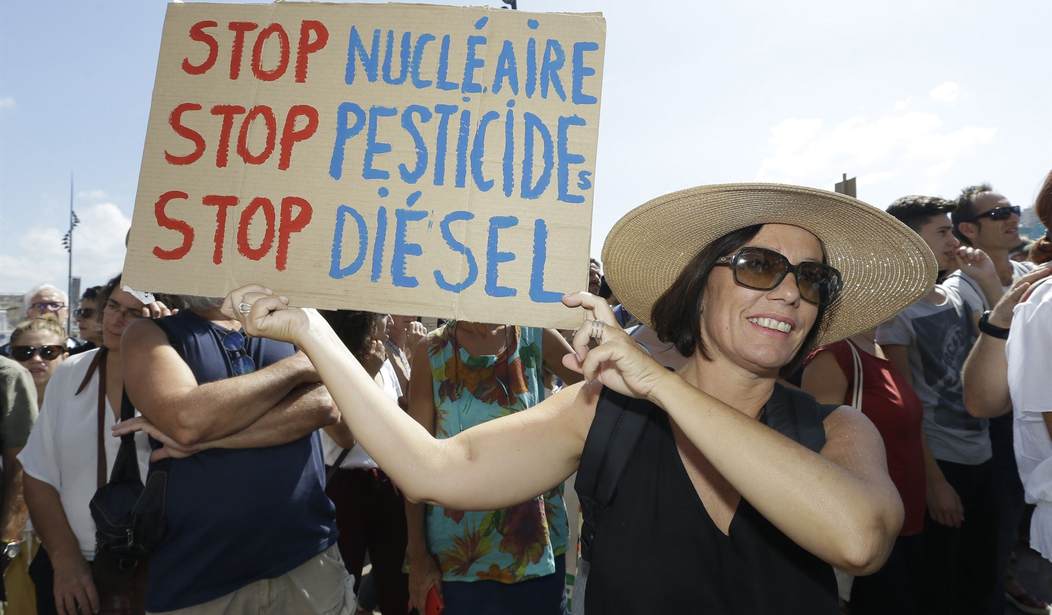Recent comments from the White House make it appear as if the Biden administration has finally noticed that the price of diesel is rising at an alarming rate along with gasoline and jet fuel. This is a big effing deal (as “the Big Guy” would say) because nearly all goods in the United States, along with tanks of the fuel itself, are transported at some point on trucks, virtually all of which run on diesel. But fear not, citizens! The White House has a plan to try to bring those diesel prices down before prices go up even further just as you’re preparing to vote in the midterms. One option being seriously considered this week is an emergency declaration that would allow Joe Biden to order the release of part of the Northeast Home Heating Oil Reserve. But as the Institute for Energy Research points out this week, such a plan is actually a terrible idea that would do little more than apply a very small and ineffective bandaid to the underlying problem while creating a potential exposure to a crisis next winter.
The White House is looking at issuing an emergency declaration that would empower President Joe Biden to release diesel from the federal Northeast Home Heating Oil Reserve to address diesel shortages on the east coast. The release, however, would provide limited, short-term relief since the reserve only contains 1 million barrels of fuel.
Further, it is reminiscent of Biden’s much larger release from the strategic petroleum reserve where oil prices only declined for a very short period. Since Biden started releasing oil from the strategic petroleum reserve last November, oil is up 42 percent and diesel is up 51 percent. The President continues to look for short term fixes, band-aiding the problem, rather than actually solving it with by promoting more oil production and refining capacity, which would increase supply.
This is another crisis that remains totally avoidable if swift, competent action is taken. This proposal would not fall into that category. For those who haven’t heard of it, the Northeast Home Heating Oil Reserve is a fuel stockpile in New York containing one million gallons of ultra-low sulfur distillate (ULSD). While it is a form of diesel fuel, the reserve does not exist for the purpose under consideration.
That reserve was established in the event that a collapse of supplies of home heating oil endangered residents of the northeast during a hard winter. It has been called on in the past for that purpose. Emergency relief programs designed to save people who cannot afford to pay their heating oil bills in the winter can also access the fuel. At full capacity, the reserve has enough heating oil to support the heating needs of people impacted by a significant shortage across the region for ten days. If you significantly drain that reserve and the winter of 2022-2023 turns out to be even colder and harder than last winter was, people could actually die.
Further, as pointed out in the linked report, unlike the nation’s Strategic Petroleum Reserve (that Biden is already draining at an alarming rate), the NHHOR only contains one million barrels of fuel. Biden has been releasing a million barrels per day from the SPR and it’s barely budged the needle on oil and gas prices. The east coast is currently reporting the lowest stockpile of diesel fuel ever recorded and diesel prices are more than double what they were at the same time last year. Dumping one million barrels into the mix will not represent a blip on the radar for more than a week or so.
The real problem is yet again a basic question of supply and demand. As we recently discussed, we have lost a number of refineries in recent years and our production capacity for diesel, gasoline, and jet fuel is lower than it’s been since 2016. But demand has not receded. In fact, it has increased as it was always predicted to do. Our capacity to import oil via pipelines, particularly from Canada, is also far below the levels projected a decade ago.
The government has been incentivizing “green energy” as far as the eye can see for several years. We may need to provide some incentives to more rapidly bring our refining capabilities up to where they need to be. There are a variety of steps the federal government could take to make that happen, but such things don’t even seem to be on the table for discussion. The only solutions being offered are very short-term bandaids that will do nothing to address the long-term challenges and may actually cause harm in the near future. That light you see at the end of the tunnel is an oncoming train. And unless we do something intelligent soon, you may not have a way to get off the tracks.









Join the conversation as a VIP Member